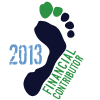Curious how you teach posture. I'll check out your book and blogs. I really need to get outside. It's snowing here in Bozeman. Better yet, Bikram Yoga in an hour!I don't mention the core. I have people do a stretch to get good posture, but that's it. It's based on the idea of avoiding teaching something that will take care of itself. If someone runs with terrible posture or their torso is flopping all over the place, I may intervene.
There's also an issue of conservation.... don't contract muscles that don't have to be contracted.
Oh, and Bikram yoga = awesome heat acclimation training.
You are using an out of date browser. It may not display this or other websites correctly.
You should upgrade or use an alternative browser.
You should upgrade or use an alternative browser.
The Running Form Thread
- Thread starter Last Place Jason
- Start date
About the core training, I am beginning to believe that a much stronger core is better than than a partially strong core. By this I mean things like weighted sit-ups, ab rollers, leg raises, weighted side bends, weighted planks, good mornings, deadlifts, weighted back extensions etc... are better than the traditional body weight core excercises. Like Jason said you really only need your "generic" core under certain sitations and typically it is small quick adjustments that are required, like jumping up to a rock. I think having a much stronger core in which a quick tuck jump twenty times or to hold a plank for two minutes is relatively easy, will provide better resistance to fatigue over the length of a run especially on a hilly trail run.
About the core training, I am beginning to believe that it a much stronger core is better than than a partially strong core. By this I mean I beleive things like weighted sit-ups, ab rollers, leg raises, weighted side bends, weighted planks, good mornings, deadlifts, weighted back extensions etc... are better than the traditional body weight core excercises. Like Jason said you really only need your "generic" core under certain sitations and typically it is small quick adjustments that are required, like jumping up to a rock. I think having a much stronger core in which a quick tuck jump twenty times or to hold a plank for two minutes is relatively easy, will provide better resistance to fatigue over the length of a run especially on a hilly trail run.
Couldn't agree more. I tried some plank stuff, but I thought to myself, "exactly how is this better than deadlifting?" I also don't get the concept of doing traditional weights stuff on an unstable platform like a rubber ball. Sure, you improve your balance, but you can't stress your targeted muscles nearly as much. I wonder if functional fitness types understand the principles of strength training. Anyway, just got a proper triceps rope for my face pulls tomorrow . . .
Abide, I'm not so sure. Here is my opinion of what allows me to be able to run injury free. And when I say injury free, I mean no injuries year after year. In my opinion, it is the same for most people though no one thing works for everyone.
1. Efficient running technique. Not perfect, but good. What this is is up to debate...
2. Good overall health: eating whole foods, hydrating, supplementing when needed. I could talk about this for quite a while.
3. Yoga: for physical, mental and spiritual health. Yoga is NOT stretching. It creates balance, aligns, strengthens and creates peace and relaxation.
4. I'm happy because I do what I love.
I don't do core exercises, work out or even run that much (I run 2-4 days a week). I'm a 'good' runner because I am efficient and healthy not because I am strong, run a lot and do speed work. I work EASIER, not harder.
1. Efficient running technique. Not perfect, but good. What this is is up to debate...
2. Good overall health: eating whole foods, hydrating, supplementing when needed. I could talk about this for quite a while.
3. Yoga: for physical, mental and spiritual health. Yoga is NOT stretching. It creates balance, aligns, strengthens and creates peace and relaxation.
4. I'm happy because I do what I love.
I don't do core exercises, work out or even run that much (I run 2-4 days a week). I'm a 'good' runner because I am efficient and healthy not because I am strong, run a lot and do speed work. I work EASIER, not harder.
Damian, I basically have people interlock their fingers, turn their palms away, and stretch their arms over their head. It takes three seconds and eliminates the really bad posture some runners use. I also found it fairly useful at preventing people from bending at the waist.
I used to do quite a bit of stability ball stuff because it improved balance and seemed to improve a lot of the stabilizer muscles. It did not, however, make me stronger. It wasn't the goal so I didn't care. It had no effect on injuries or soreness.
Funny core story: When I started working out with a Crossfit trainer and doing Olympic lifts, my trainer was shocked I was so weak given my build. It took two more sessions before we realized I was completely relaxing my core muscles (ala relaxed running). Once I tensed them, I was able to squat three times the amount as before.
Okay, maybe it's not "ha, ha" funny... more "peculiar runner habit" funny.
Funny core story: When I started working out with a Crossfit trainer and doing Olympic lifts, my trainer was shocked I was so weak given my build. It took two more sessions before we realized I was completely relaxing my core muscles (ala relaxed running). Once I tensed them, I was able to squat three times the amount as before.
Okay, maybe it's not "ha, ha" funny... more "peculiar runner habit" funny.
Abide, I'm not so sure. Here is my opinion of what allows me to be able to run injury free. And when I say injury free, I mean no injuries year after year. In my opinion, it is the same for most people though no one thing works for everyone.
1. Efficient running technique. Not perfect, but good. What this is is up to debate...
2. Good overall health: eating whole foods, hydrating, supplementing when needed. I could talk about this for quite a while.
3. Yoga: for physical, mental and spiritual health. Yoga is NOT stretching. It creates balance, aligns, strengthens and creates peace and relaxation.
4. I'm happy because I do what I love.
I don't do core exercises, work out or even run that much (I run 2-4 days a week). I'm a 'good' runner because I am efficient and healthy not because I am strong, run a lot and do speed work. I work EASIER, not harder.
I think something you are discounting in all of this is your genetics, and they likely play a larger role in being a good runner with solid form than the others you listed.
I like to think I am good runner but to be honest I am a relatively short and heavy with a large body frame. I can pack on a ton of muscle but when it comes to running I struggle mostly with distance, somewhat with speed and occasionally with injuries (although they tend to coincide with conditioning). I eat very healthy, I do yoga, I am cognizant of my running form but all of that isn't enough in my experience. I guess I have to work harder than most people at running because I'm built different.
My intetion in that post wasn't to knock you but was more of an idea at how to become a better runner for ones who aren't naturals.
Right, if the goal is to improve balance, that sort of thing makes sense. If it's to improve strength, it's not very efficient. It's often useful to break things down into their components and specialize. The overall results will come faster. Do endurance work, do strength work, do agility work. Functional Fitness type stuff seems to try to pack it all into one package. It's great for people with limited time who just want basic, general fitness, but I like being strong and being able to run reasonably well. My balance seems OK as it is, but it would be nice if I could run trails more often.I used to do quite a bit of stability ball stuff because it improved balance and seemed to improve a lot of the stabilizer muscles. It did not, however, make me stronger. It wasn't the goal so I didn't care. It had no effect on injuries or soreness.
How about tossing a new topic on the fire: to let the heels touch or not?
I'm a firm advocate of the idea that the amount of heel touch increases as a function of pace. The faster you go, the less the heel will touch. At ultra pace, the heel spends a lot of time on the ground. When sprinting, it doesn't touch at all.
The other beliefs tend to say the heel should always touch regardless of pace and the heel should never touch (run on your toes).
Discuss.
I'm a firm advocate of the idea that the amount of heel touch increases as a function of pace. The faster you go, the less the heel will touch. At ultra pace, the heel spends a lot of time on the ground. When sprinting, it doesn't touch at all.
The other beliefs tend to say the heel should always touch regardless of pace and the heel should never touch (run on your toes).
Discuss.
NickW
Guest
I am firmly in the it should be a very very very minor heel touch no matter the pace, although sprinting I know my heels don't touch at all. I've finally started consistently finding that inner leg spring that propels the leg up and forward (is this the right word?) by switching back to the barely letting the heel come down instead of letting the heel come down with no regard to how hard(does this make sense? Forefoot and midfoot have always come down first, but there was no control or regulation on how hard the heel followed.). My PF seems to bother me no where near as much with this method too.
Abide, actually I disagree with you quite a bit. I don't believe genetics plays a role as much as people believe it does. Of course it plays some role. For me, I use to be a slightly better than average runner with lots of chronic injuries. Lots of hard work and practicing technique over the years has really paid off.I think something you are discounting in all of this is your genetics, and they likely play a larger role in being a good runner with solid form than the others you listed.
I like to think I am good runner but to be honest I am a relatively short and heavy with a large body frame. I can pack on a ton of muscle but when it comes to running I struggle mostly with distance, somewhat with speed and occasionally with injuries (although they tend to coincide with conditioning). I eat very healthy, I do yoga, I am cognizant of my running form but all of that isn't enough in my experience. I guess I have to work harder than most people at running because I'm built different.
My intetion in that post wasn't to knock you but was more of an idea at how to become a better runner for ones who aren't naturals.
I also use to be built much bigger and have more upper body mass. Running a lot has transformed my body into more of a runners body versus the other way around.
Yes. Although I'm not sure it doesn't touch at all when sprinting:I'm a firm advocate of the idea that the amount of heel touch increases as a function of pace. The faster you go, the less the heel will touch. At ultra pace, the heel spends a lot of time on the ground. When sprinting, it doesn't touch at all.
Dumb, dumb, dumb.The other beliefs tend to say the heel should always touch regardless of pace and the heel should never touch (run on your toes).
Hello,
I would say, heels touching the ground depend on what you do and where you do it. On long runs a light heel touch is less tiring. On short sprints a heel touch would slow you down. But it depends also on the ground. A steep hill doesn't always present the convenience of a root or a flat stone in the right place under your heel. Specially if it's not a trail but an asphalt road. In this case the angle between ground and body is similar to the lean whilst sprinting.
On really technical patches of trail without shoes I try not to let the heels come down - if I do, the tender parts of my arches will be embellished with beautiful blue coloured bruises...
I would say, heels touching the ground depend on what you do and where you do it. On long runs a light heel touch is less tiring. On short sprints a heel touch would slow you down. But it depends also on the ground. A steep hill doesn't always present the convenience of a root or a flat stone in the right place under your heel. Specially if it's not a trail but an asphalt road. In this case the angle between ground and body is similar to the lean whilst sprinting.
On really technical patches of trail without shoes I try not to let the heels come down - if I do, the tender parts of my arches will be embellished with beautiful blue coloured bruises...
Abide, actually I disagree with you quite a bit. I don't believe genetics plays a role as much as people believe it does. Of course it plays some role. For me, I use to be a slightly better than average runner with lots of chronic injuries. Lots of hard work and practicing technique over the years has really paid off.
I also use to be built much bigger and have more upper body mass. Running a lot has transformed my body into more of a runners body versus the other way around.
I think we are going to have to agree to disagree here. I'm not sure how much genetic difference affect form, but when you consider bone structure, limb length, muscle fiber predisposition it seems like they would be a major factor.
On another note those supps came in the mail and I started taking them a couple of days ago and I am happy to report that the morning soreness is going away. I think they are helping!
Are you talking about the tissue rejuvenator Abide?: http://www.hammernutrition.com/products/tissue-rejuvenator.tr.htmlOn another note those supps came in the mail and I started taking them a couple of days ago and I am happy to report that the morning soreness is going away. I think they are helping!
If so, I may have to check it out.
I'm still not convinced gravity can be ignored. Here's a thought experiment that might actually be easy to carry out in real life. Suspend yourself above a treadmill so that your torso doesn't move up or down. You should be at a height that allows you legs to stretch out behind like in normal running. Try to run. My first thought is that you would have to push down really hard to get traction and running would not be efficient at all. But what if we can have the same amount of traction, with hooks and loops (Velcro)? The belt would have the loops and put just enough hooks on your feet to not interfere with lifting. How is running now? Easier than without the Velcro for sure, but as efficient as with gravity?
I'm guessing you would be working noticably harder to go the same speed, even after adapting to the weirdness of it.
I'm guessing you would be working noticably harder to go the same speed, even after adapting to the weirdness of it.
Bare Lee, you cannot ignore gravity. You can only cooperate with it. Just let gravity do the work...























